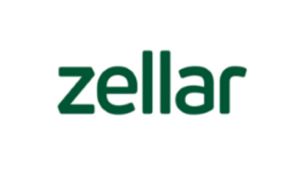MuckRack's State of Journalism -


MuckRack is an essential part of the Frame PR ‘tech stack’ – probably the best media tool we’ve used over the years; a really intuitive and up-to-the-minute database covering journalists, podcasters and bloggers in the US, the UK and Europe.
It’s worth saying a bit about media databases and lists first. It’s typically a forgotten (and boring) part of the PR discussion, but we have all seen how an out of date media list can badly impact the results of a campaign. Creating a media list is usually the task given to the most junior person in an agency, and might even get palmed off to a virtual assistant who has no PR knowledge at all and has been told to just download a list. But here’s why we believe that’s a really bad idea.
An experienced PR who spends time on Twitter or Linkedin will have the insider scoop on when a journalist is moving roles, or when a business editor also starts a brilliant SubStack newsletter or podcast that’s gaining traction but that the database might not yet be aware of (they’re all fallible and run by humans after all). It’s one of the reasons we have a team of people who have a big bank of contacts from years having worked in lots of agencies and newsrooms.
Combining human knowledge with tech is the way to success; keeping an eye out on what journalists are writing on and who for. The database is our IP in PR – the most useful tool we have and the starting point for any press release campaign. It’s what differentiates a good agency from a bad one, or from a startup or scale-up who thinks they can do it themselves by scouring the internet for the email address formats of journalists.
MuckRack has just published its annual ‘State of Journalism 2023’ report – looking behind the scenes at how journalists operate across four continents. It has four really interesting takeaways, we thought. Firstly, what keeps journalists up at night? We spend a lot of time thinking about what keeps clients up at night, but we should be equally empathetic about the media if we want to understand what’s going to work for them. It turns out…
Disinformation is the top concern of journalists
Quality control or fact-checking support in newsrooms requires resources they don’t always have. PRs can help here. We often have access to a lot of “hidden” client data that they wouldn’t necessarily know about that can support stories; we also need to ensure we add in sources to all our surveys and any data we provide. Our expert clients can also fact check, and/or provide an on the ground viewpoint – a “what’s honestly happening in my business” insight.
Lack of time to cover stories thoughtfully
This came up high (33% of journalists answered this as their top concern). Again, we can really help. A phrase we often use in PR is a “story in a box”. As PRs we can help solve the problem of journalists having not enough time, and too little resource by giving them all the ‘media assets’ they could need, for example a spokespeople they can trust to answer the phone or answer questions quickly and thoughtfully on email, or case studies who we know will provide insight. Or the right images in the right format to give colour to their article.
Social media is slowly shifting from Twitter to Linkedin
Yes, journalists still predominantly hang out, and look for sources, on Twitter. 78% say it’s the most valuable social network for them. It’s why we as a PR agency also ‘live’ there during the day, and occasionally in the evenings too. You’ll often find us interacting with journalists about the topics they and our clients care about (because we genuinely like interacting with people). Muckrack found that Linkedin is also really gaining pace, having grown by 8% in popularity compared to last year. We’ve also noticed more journalists posting there looking for sources, as Twitter has become slightly less reliable over the last year when it comes to the visibility of posts.
CEOs are less valuable as sources than academics
This seems a tricky thing on the surface for the PR who’s paid to promote their client, where the CEO is usually the spokesperson. Our experience is that CEOs are very much still in demand, but it’s worth also befriending and enlisting academics, maybe a university professor or an author in a given subject area who can add gravitas and credence to reports or other fact-based PR campaigns. Having an academic as well as your client to offer as a double header interview on a podcast can be really valuable too.
You can download Muckrack’s State of Journalism Report 2023 report for free here: https://info.muckrack.com/state-of-journalism-2023














